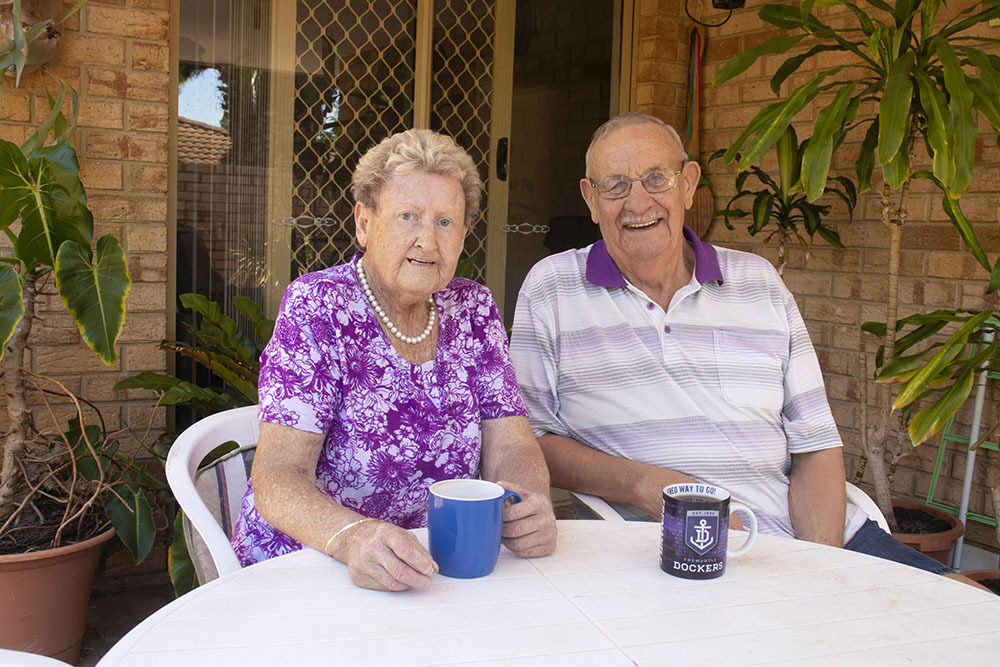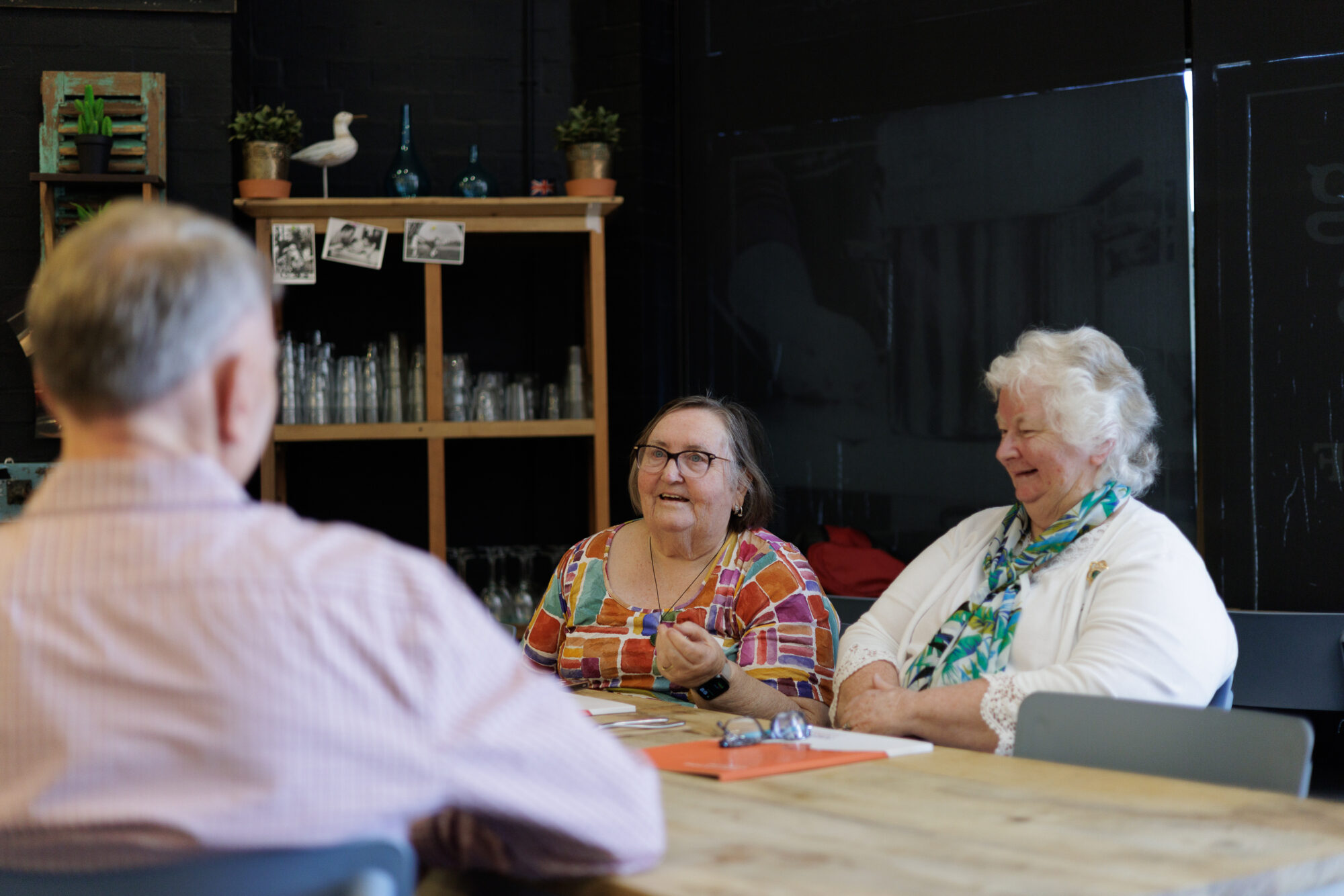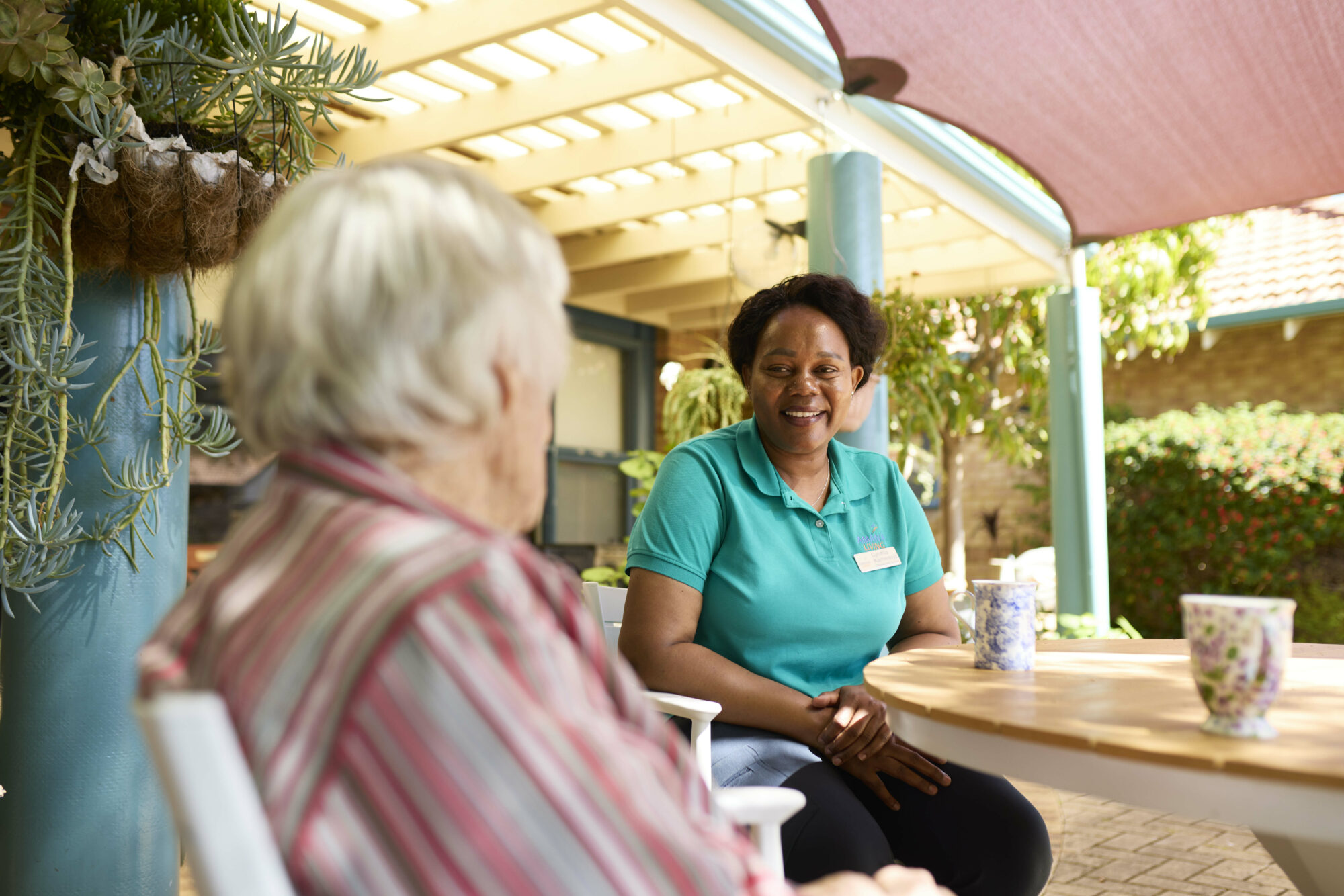Peter and Lyn Edmunds never thought about getting home care regularly until their son and daughter-in-law encouraged them to have an ACAT assessment after Peter had been caring for Lyn as her Scleroderma, a chronic connective tissue disease, progressed over time.
Initially, Peter and Lyn both received support via Amana Living’s short-term restorative care program before their home care packages were approved with Lyn receiving a level 4 home care package and Peter receiving a level 3.
Amana Living has provided the Edmunds with home care services for about 12 months. The couple have a cleaner twice a week, and a community support worker who comes in every Wednesday to help prepare meals. They even have a mobile hairdresser visit on a Tuesday.
“Everyone from Amana Living has been fantastic. The cleaner does a great job with the house, while they also have a chat with Lyn. The hairdresser is now cutting my hair as well as Lyn’s, which is handy as I don’t have to go out and wait at the barbers,” explained Peter. “It feels good to have my hair done once a week,” added Lyn.
“I do a bit of the cooking but the lady who prepares the meals is very helpful as Lyn can no longer cook. She’ll also sit and have a talk with Lyn, or take Lyn for a drive to the op shop or go for a coffee. It also means I can go out and do the shopping, and it breaks the monotony of being at home all the time. This was important earlier on in the pandemic when we couldn’t see many people,” continued Peter.
“I also have a physio who comes in twice a week, which I’ve found helpful as I have back pain from when I had a fall and I've had both my hips replaced.”
In addition to the services provided by Amana Living, Lyn has attended a social club with the fees coming out of her home care package. “Before COVID, I was attending the club every Tuesday and it was good for me to be out and amongst people. Getting to know the women who attended the club and talking to them has helped me a lot,” said Lyn.
Like some people, the couple were initially reluctant to get home care on a regular basis but now appreciate the additional help and support.
“When you first retire, you probably think something like home care is threatening your independence,” said Peter. “Even when my son and daughter-in-law suggested it, I said no but it does become too much especially if you’re caring for someone. Goodness gracious me, I was silly not to do this earlier. It’s a big assistance. You’re not losing your independence; you’re gaining independence.”




